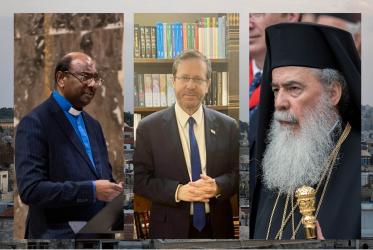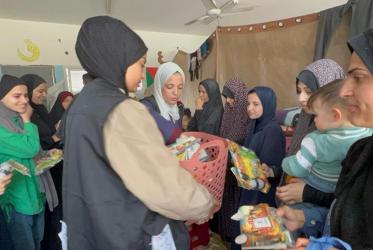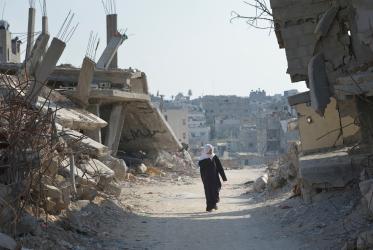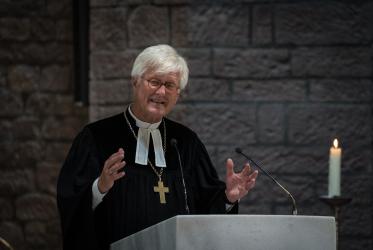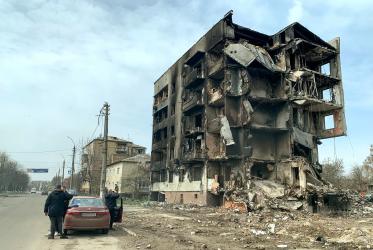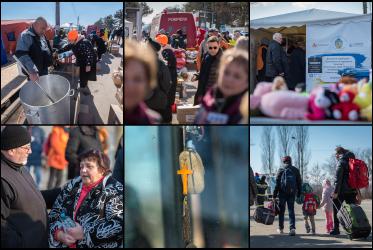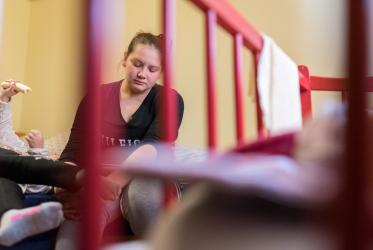Displaying 1 - 20 of 39
03 April 2024
Words of steadfastness ring from the rubble
21 March 2024
WCC calls for immediate end to brutal violence in Gaza
30 December 2023
Displaced people south of Gaza face extreme difficulty
21 December 2023
Ukraine: Responding to humanitarian need
08 September 2022
In Lebanon, “without peace there is no justice”
21 July 2021


